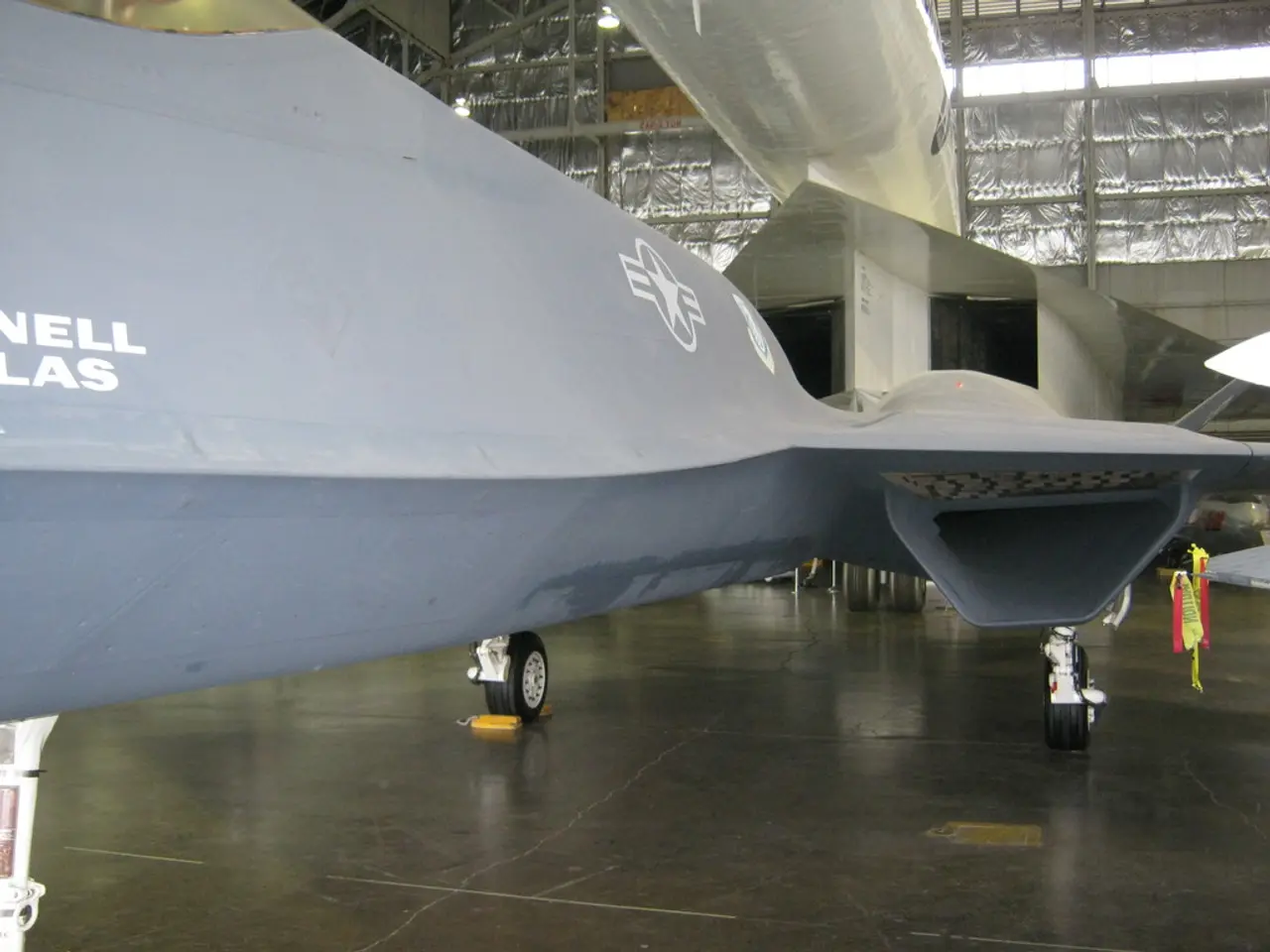Airline giant Ryanair ponders increased employee rewards for identifying excess-sized luggage
Ryanair, Europe's leading low-cost airline, is taking a firm stance against excess baggage, with Chief Executive Michael O'Leary reiterating the airline's commitment to eliminating what he calls "the scourge of passengers with excess baggage." This move is part of Ryanair's strategy to maintain quick turnarounds and operational efficiency, as well as to reduce delays and enforce fair compliance with strict baggage rules.
To incentivize staff, Ryanair is offering a bonus system. Each time an employee identifies and stops a passenger from bringing oversized cabin luggage on board, they receive a small financial reward of €1.50 per case. This system, which aims to reduce disruptions caused by oversized bags, is reportedly effective, with 99.9% of passengers following the baggage rules. Ryanair plans to increase this bonus to further motivate staff in combating excess baggage.
The airline channels part of the excess baggage fees collected from the small minority of non-compliant passengers (less than 0.1%) into these staff bonuses. This incentivization has proven beneficial, as it not only helps maintain operational efficiency but also streamlines flight schedules and improves punctuality.
In financial news, Ryanair reported a net profit of €820 million for the second quarter of 2025, up from €360 million the previous year. This growth was boosted by fare increases, particularly for last-minute bookings, resulting in a 20% rise in revenue for the quarter. The average fare for Ryanair climbed to €51, marking a 21% year-on-year rise.
Despite the fare increases, CEO Michael O’Leary expects to improve profitability through cost control, despite fares remaining similar to 2023 levels. This is in part due to the airline's efforts to streamline operations and reduce delays caused by excess baggage.
Ryanair's current cabin baggage policy allows one small carry-on item with a maximum size of 40 x 20 x 20 cm and a weight limit of 10 kg. Baggage sizers are available in Ryanair terminals to help passengers ensure their luggage complies with the policy.
However, not all airlines share Ryanair's stance. A proposal in the European Parliament suggests that airlines allow passengers to carry both a personal item and a small piece of hand luggage free of charge. However, Ryanair has pushed back against this idea, citing operational efficiency and the need to enforce strict baggage rules.
Meanwhile, several European airlines, including Ryanair, have agreed on harmonising cabin baggage rules with a recommended standard size of 40 x 30 x 20 cm. This is not yet mandatory, but it is a step towards standardising baggage policies across the continent.
There is a potential risk for Ryanair and other European airlines if a trade agreement between the EU and the United States fails to materialize. The exemption, originally established in a 1979 agreement, that exempts commercial aircraft from US tariffs is now under review. If the agreement fails, commercial aircraft could once again be subject to US tariffs, which could impact the airline's profits.
In comparison, EasyJet staff receive a bonus of €1.40 per flagged oversized bag (approximately €1.20 after tax), a bonus worth roughly 10% of their hourly pay. This is slightly higher than the €1.50 per case received by Ryanair staff.
As Ryanair continues to enforce its strict baggage policy and incentivize staff to maintain operational efficiency, it remains to be seen how this will impact the airline's operations and profitability in the long run.
- Ryanair's staff are rewarded financially for preventing passengers from bringing oversized cabin luggage on board, known as the Eco-Flights Lifestyle Bonus, aiming to encourage adherence to strict baggage rules.
- Due to the success of its bonus system, Ryanair now plans to increase the incentive for staff, further motivating them to combat excess bagging on flights.
- With the rise in last-minute bookings, Ryanair's profit saw a significant increase, up from €360 million in 2024 to €820 million in 2025, illustrating the airline's commitment to maintaining operational efficiency and improving its overall financial performance.




